 W
WMirza Adeeb,, also known as Meerza Adeeb,, was a Pakistani Urdu writer of dramas and short stories. His plays and short stories won him six prizes and awards from the Pakistan Writers' Guild.
 W
WAyad Akhtar is an American playwright, novelist, and screenwriter of Pakistani heritage who received the 2013 Pulitzer Prize for Drama. His work has received two Tony Award nominations for Best Play and an Award in Literature from the American Academy of Arts and Letters. Akhtar's writing covers various themes including the American-Muslim experience, religion and economics, immigration, and identity. In 2015, The Economist wrote that Akhtar's tales of assimilation "are as essential today as the work of Saul Bellow, James Farrell, and Vladimir Nabokov were in the 20th century in capturing the drama of the immigrant experience."
 W
WBushra Ansari is a Pakistani actress, comedian, singer and playwright who started her career as a child performer in the 1950s. Ansari won numerous awards during her career, including the Presidential Pride of Performance Award in 1989 for her contributions to the arts of Pakistan.
 W
WMirza Athar Baig is a Pakistani novelist, playwright and short story writer. He has been associated with the Department of Philosophy, at the Government College University in Lahore. His fiction works include the novel Ghulam Bagh, considered one of the central works of literature in the Urdu language.
 W
WFouzia Bhatti is an Urdu language author, poet, and columnist from Pakistan.
 W
WOsman Khalid Butt is a Pakistani film, television and theatre actor, writer and choreographer. He is the recipient of several accolades, including two Hum Awards and has been nominated for the Lux Style Award on two occasions.
 W
WRazia Butt was an Urdu novelist and playwright from Pakistan. Her novels typically have strong female protagonists, and have been dramatised in movies and television plays.
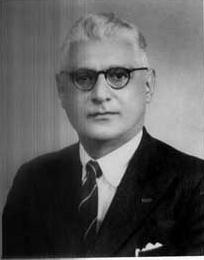 W
WAhmed Ghulam Ali Chagla was a Pakistani musical composer who famously wrote the music for the national anthem of Pakistan in 1949. A scholar and writer, he was also an active member of the Theosophical Society.
 W
WShatir Ghaznavi (1905–1971) was a playwright, lyricist and story/screenplay dialogue writer for movies, born in 1905 in Peshawar, Pakistan. His real name was Amin-ul-haq Khan but he adopted the pen name of Shatir Ghaznavi. His ancestors had moved from Ghazni, Afghanistan to Peshawar, so he used "Ghaznavi" as his pen name to indicate his origins.
 W
WBee Gul is an award-winning Pakistani screenwriter and director. She wrote some critically acclaimed TV plays and television films like Talkhiyaan, Pehchaan, Kaun Qamar Ara, Firdous ki Dozakh and Dar Si Jaati Hai Sila. She created visible ripples in the world of Pakistani television writing. An extraordinary sense of the screenplay going beyond mere dialogue writing became the characteristic of her style, which touched tabooed topics in a bold but commendable way. Both her plays Talkhiyaan and Pehchan have been anything but the usual run-of-the mill dramas which airs on television all the time.
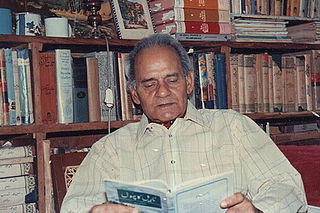 W
WAbdul Hameed was an Urdu fiction writer from Pakistan. He was also mainly known for writing a popular children's TV play Ainak Wala Jin (1993) for Pakistan Television Corporation which was broadcast on PTV during the mid-1990s.
 W
WMohammed Hanif is a British Pakistani writer and journalist who writes a monthly opinion piece in The New York Times.
 W
WSharif Hussain, who used the pseudonym Nasīm Hijāzī, was an Urdu novelist.
 W
WQurratulain Hyder was an Indian Urdu novelist and short story writer, an academic, and a journalist. One of the most outstanding and influential literary names in Urdu literature, she is best known for her magnum opus, Aag Ka Darya, a novel first published in Urdu in 1959, from Lahore, Pakistan, that stretches from the 4th century BC to post partition of India.
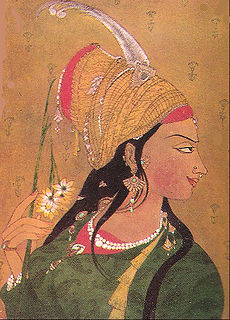 W
WSyed Imtiaz Ali Taj was a dramatist who wrote in the Urdu language. He is remembered above all for his 1922 play Anarkali, based on the life of Anarkali, that was staged hundreds of times and was adapted for feature films in India and Pakistan, including the Indian film Mughal-e-Azam (1960).
 W
WSenior Justice Javed Iqbal was a Pakistani philosopher and senior justice of the Supreme Court of Pakistan. He was internationally known for his acclaimed publications on philosophy of law and modern Islamic philosophy in international and national journals.
 W
WNisar Muhammad Khan was a Pakistani playwright, scriptwriter, broadcaster, and director of the Radio Pakistan. Besides contributing to Pashto language and culture, he is also credited for writing books, including Speen Tumbal on Pashto music and another one Aghosh-i-Kausar covers the life of Bilal ibn Rabah, a companion of Islamic prophet Muhammad.
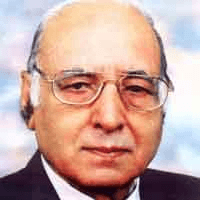 W
WMohammad Ibrahim Baig, known by his pen name Khatir Ghaznavi; romanized: K̲h̲āt̤ir G̲h̲aznavī, was a Pakistani multilingual writer, poet, playwright, research scholar, and director of Pakistan Academy of Letters. He wrote about forty-five to fifty books, including poems and children's books in Urdu, Hindko and Pashto languages throughout his life, though most of his literary work appears published in Urdu and Hindko.
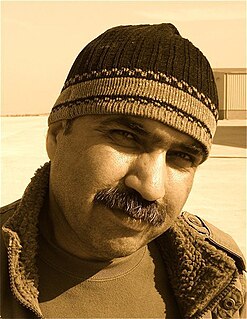 W
WZafar Mairaj born on 11 October 1968, at Quetta, Balochistan, is a Pakistani drama writer, lyricist, and short story writer. He primarily writes in Urdu, but has also written in Brahui, and Balochi. He has written more than 50 drama serials, drama series, short plays and telefilms, for National television PTV as well as for most of the private channels in Pakistan like Geo TV, AAJ TV, ARY Digital, Indus Vision, TVOne Global, Hum TV etc. He has won National Drama awards.
 W
WSaadat Hasan Manto was a writer, playwright and author born in Ludhiana active in British India and later, after the partition, in Pakistan. Writing mainly in the Urdu language, he produced 22 collections of short stories, a novel, five series of radio plays, three collections of essays and two collections of personal sketches. His best short stories are held in high esteem by writers and critics. Manto was known to write about the hard truths of society that no one dared to talk about. He is best known for his stories about the partition of India, which he opposed, immediately following independence in 1947.
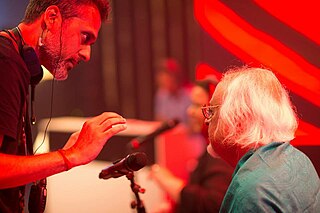 W
WAnwar Maqsood Hameedi popularly known as Anwar Maqsood is a Pakistani scriptwriter, television presenter, satirist, humorist, and infrequent actor. He was well known for his drama write-ups for PTV in the late 1970s and 1980s.
 W
WAli Arshad Mir was an epic Punjabi poet and writer, sometimes described as the "Homer of Punjab". His works have been translated into languages such as Urdu and English. In the 1970s, his International Anthem brought him recognition. His lines, girti hui dewaroo koo aik dhaka aur do are a popular slogan in the Punjab and around the world. His work includes dozens of poems that depict the socio-economic condition of society's oppressed people. They also highlight the sacrifices of the subcontinent's resistance movements. He was a great researcher of Punjabi language, critic and unique poet of modern Punjabi poetry Prof. Arshad documented his culture and values through his poetry and tapped the historical significance of the very land and the local environment he belonged to.
 W
WAli Moeen is a Pakistani playwright and a lyricist.
 W
WHaseena Moin is a Pakistani dramatist, playwright and scriptwriter. She has written several plays for stage, radio and television, some of which have even gained international repute. She is the recipient of the Pride of Performance award for her services to the performing arts in Pakistan. She wrote Pakistan's first original script 'Kiran Kahani' aired in the early-1970s. Before this PTV relied on novel-based scripts for dramas. She is considered to be the best playwright and dramatist Pakistan has ever witnessed.
 W
WMumtaz Husain, better known as Mumtaz Mufti, was a writer from Pakistan.
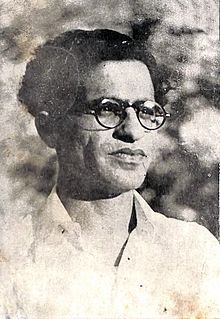 W
WAhmad Nadeem Qasmi born Ahmad Shah Awan on 20 November 1916 – died 10 July 2006, was an Urdu language Pakistani poet, journalist, literary critic, dramatist and short story author. He wrote 50 books on topics such as poetry, fiction, criticism, journalism and art, and was a major figure in contemporary Urdu literature. His poetry was distinguished by its humanism, and his Urdu afsana work is considered by some second only to Munshi Prem Chand in its depiction of rural culture. He was also editor and publisher of the literary magazine Funoon for almost half a century. He received awards such as the Pride of Performance in 1968 and Sitara-e-Imtiaz in 1980 for his literary work.
 W
WBano Qudsia, also known as Bano Aapa, was a Pakistani novelist, playwright and spiritualist. She wrote literature in Urdu, producing novels, dramas plays and short stories. Qudsia is best recognized for her novel Raja Gidh. Qudsia also wrote for television and stage in both Urdu and Punjabi languages. Her play Aadhi Baat has been called "a classic play". Bano Qudsia died in Lahore on 4 February 2017.
 W
WMyra Sajid is a Pakistani dramatist, playwright and scriptwriter. He is well known for his drama series Neeli Chatri about women's social issues, directed by Ahson Talish. He made his second collaboration with Talish by writing the screenplay for the serial Numm.
 W
WAnwar Jalal Shemza was an artist and writer active in Pakistan and later the United Kingdom. Despite being better known as an artist, Shemza published several Urdu novels and books of poetry in the 1950s and wrote plays performed on Radio Pakistan. Shemza was initially influenced by Modernism most notably Paul Klee although later works also showed a traditional Islamic influence. He was also an accomplished printmaker, having his work exhibited at the International Print Biennial in Tokyo.
 W
WBapsi Sidhwa is a Pakistani American novelist of Gujarati Parsi descent who writes in English and is resident in the United States.
 W
WNajm Hosain Syed is a Pakistani writer. He has written poetry and plays in the Punjabi language as well as literary criticism on Punjabi literature in his Recurrent Patterns in Punjabi Poetry (1968).
 W
WGhulam Mustafa Tabassum, was a 20th-century poet. His pen name was Tabassum.
 W
WMustansar Hussain Tarar S.I. is a Pakistani author, travel enthusiast, mountaineer, writer, novelist, columnist, TV host and former actor.
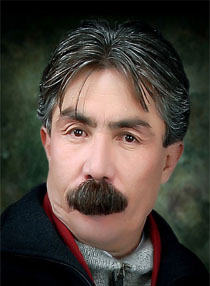 W
WHussain Ali Yousafi was an ethnic Hazara politician in Balochistan, Pakistan. Yousafi was chairman of the Hazara Democratic Party (HDP) and a member of the Quetta city council. He was assassinated by unknown militants in 2009.
 W
WFakhar Zaman was the chairman of the Pakistan Academy of Letters from 11 May 2008 to 12 March 2012, when Abdul Hameed replaced him as the next appointed chairman of the body. A leader of the Pakistan Peoples Party (PPP) and the chairman of the World Punjabi Congress, he has also been playing a notable role in politics to achieve his sociopolitical ideals.